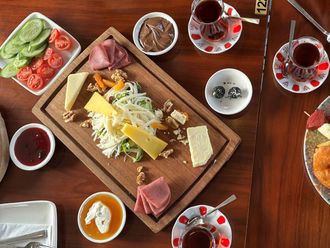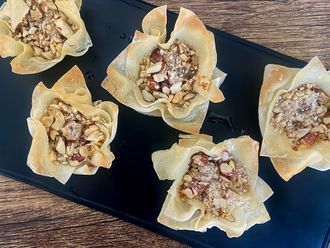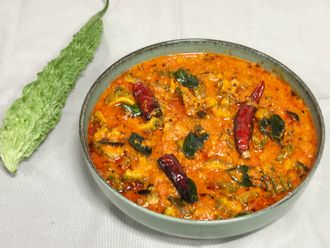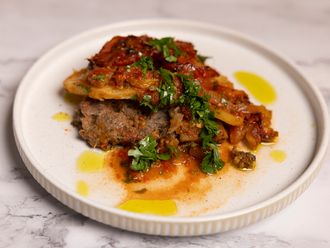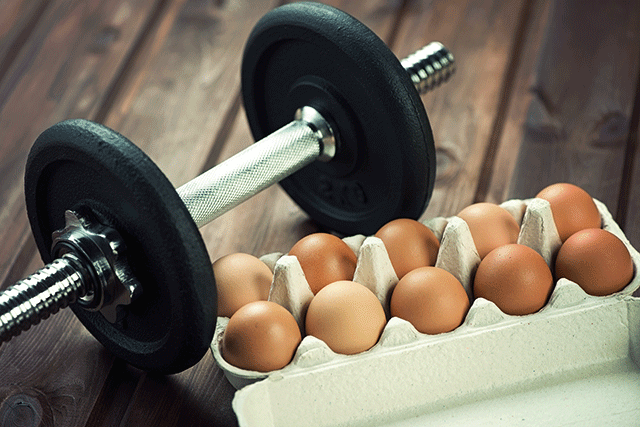
In the past, eggs have got a bad rep because of their cholesterol and fat content. But in reality, few things match this food at packing such nutritional power in a small, but deliciously satisfying package, particularly for those looking to build muscle or burn fat.
Eggs have long been known as a great source of high-quality protein, both for an average person and those who spend hours pumping iron in the gym.
Just one egg can give over 12 per cent of the daily recommended intake of protein. The quality of egg protein is so high that the World Health Organisation (WHO) uses it as a reference standard against which the protein quality of all other food is judged.
And, as you’re probably aware, the more muscle you have, the more calories you burn at rest, making it simple for you to get lean, lose weight or both. Now how does egg play a valuable role in the muscle-building process?
Egg protein
“For muscle building (protein synthesis) to occur your body requires proteins in the forms of amino acids,” says James Heagney, Founder and Head Coach at D5 Executive Gym in Dubai.
“Protein sources are ranked in their ability to be absorbed by the body in a measurement called the biological value. Eggs score a perfect 100, meaning your body absorbs more of the protein than from other sources such as animal meats.”
Rashi Chowdhary, a Dubai-based nutritionist and an inch-loss expert, explains that muscle-building is a process that happens after you finish your workout. When you lift heavy or do heavy resistance training, you tear your muscles and based on what you eat over the next 24 hours, the process of repairing and building takes place. “Muscle is made up of protein strands or myofibrils so eating quality protein is key when it comes to building muscle,” she says.
“When we evaluate the protein in an egg, although it has just 7g of protein, the quality is key. The protein in eggs has all the essential amino acids. The body cannot produce them on its own and we have to get it from the right sources. Also, the body can absorb protein better from cooked eggs than raw.”
Eggs are a nutritional powerhouse, but for a while, egg yolks have been demonised in the health-food industry as causing blood-cholesterol levels to skyrocket. Many health-conscious folks opt for egg whites only. Little do they know they’re wasting a huge dose of protein and other precious nutrients when they toss out those golden yolks.
Eat or toss?
“The yolk (yellow) of the egg is misrepresented,” says Heagney. “The yolk contains key fat soluble vitamins such as A, D, E and K and minerals that aid and assist in muscle building, such as zinc. The higher fat content of the egg yolk will promote the production of your body’s hormones such as testosterone, which is a key factor in determining how much muscle mass you can acquire.”
Whole eggs are a nearly perfect food, with almost every essential vitamin and mineral our bodies need to function. “Just make sure you eat a fast carb such as orange juice, potato or banana along with eggs post workout, so the muscle building process can happen efficiently,” says Chowdhary. “Eggs are nature’s multivitamin and are called rightly so because apart from high-quality protein they contain powerful brain nutrients such as B12, iron and selenium.”
How many eggs should a person who wants to build muscle eat? Chowdhary says it depends on what your current body fat percentage is and what your goals are. Only then can you decide how much protein you need to consume and almost half of your protein requirements can come from eating wholesome eggs.
Additionally, keep a check on how many and what quality of carbs you are eating all day. “When you eat whole eggs, you are consuming a lot of good fats,” says Chowdhary.
“If you are going to eat good fats along with too many wrong kind of refined carbs, you have the danger of landing with high blood cholesterol levels, not because of the fat in the eggs but the combination of high fat and high carbs. Someone who eats a well-balanced healthy meal all through the day — free from too much gluten, dairy and soy — and consumes a lot of fibre from veggies can have two to three whole eggs without feeling scared about cholesterol levels going up.”
You also need to rotate your protein sources and not to rely on any one source. “For men who wish to build muscle I recommend around 1.5g of protein per kilo of body weight per day,” says Heagney. “A single egg provides 6g of protein so it’s important to include other forms of protein such as dairy, meats and various protein powders, including vegan-based sources. Eating too many whole eggs every day can elevate your fat consumption rapidly. Egg whites are a simple solution if you are consuming eggs daily and in higher amounts.”
How you cook your eggs can also influence how good they are for you. Chowdhary recommends that semi-boiled eggs or eggs fried in organic butter or ghee as the best. “If you are having them daily, adding a lot of fibre in the form of vegetables is a great idea to make sure your cholesterol levels do not rise,” she says. “Skip the bread on the side and instead add vegetables such as tomatoes, onions, mushrooms and spinach to get in your carbs. If you want more carbs, add a portion of sweet potato or regular potato along with your eggs.”
High-energy food
For muscle building to occur, your body requires sufficient protein every day to increase nitrogen retention so eating sufficient protein for your goals within 24 hours is the most important concern. “I do recommend eating a protein source before and after training,” says Heagney.
“Eggs are certainly an option. This depends on your budget and how often you are rotating protein sources.”







